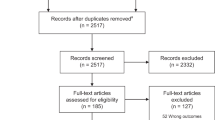Abstract
Objective:
To understand neonatologists’ attitudes toward end-of-life (EOL) management in clinical scenarios, EOL ethical concepts and resource utilization.
Study Design:
American Academy of Pediatrics (AAP) Perinatal section members completed an anonymous online survey. Respondents indicated preferences in limiting life-sustaining treatments in four clinical scenarios, ranked agreement with EOL-care ethics statements, indicated outside resources previously used and provided demographic information.
Result:
In all, 451 surveys were analyzed. Across clinical scenarios and as general ethical concepts, withdrawal of mechanical ventilation in severely affected patients was most accepted by respondents; withdrawal of artificial nutrition and hydration was least accepted. One-third of neonatologists did not agree that non-initiation of treatment is ethically equivalent to withdrawal. Around 20% of neonatologists would not defer care if uncomfortable with a parent's request. Respondents’ resources included ethics committees, AAP guidelines and legal counsel/courts.
Conclusion:
Challenges to providing just, unified EOL care strategies are discussed, including deferring care, limiting artificial nutrition/hydration and conditions surrounding ventilator withdrawal.
This is a preview of subscription content, access via your institution
Access options
Subscribe to this journal
Receive 12 print issues and online access
$259.00 per year
only $21.58 per issue
Buy this article
- Purchase on Springer Link
- Instant access to full article PDF
Prices may be subject to local taxes which are calculated during checkout

Similar content being viewed by others
References
AAP Committee on Fetus and Newborn. Non-initiation or withdrawal of intensive care for high-risk newborns. Pediatrics 2007; 119: 401–403.
AAP Committee on Bioethics. Ethics and the care of critically ill infants and children. Pediatrics 1996; 98: 149–152.
Diekema DS, Botkin JR . Forgoing medically provided nutrition and hydration in children. Pediatrics 2009; 124: 813–822.
AAP Committee on Bioethics and Committee on Hospital Care. Palliative care for children. Pediatrics 2000; 106: 351–357.
AAP Committee on Bioethics. Guidelines on forgoing life-sustaining medical treatment. Pediatrics 1994; 93: 532–536.
Batton DG . Antenatal counseling regarding resuscitation at an extremely low gestational age. Pediatrics 2009; 124: 422–427.
Tibbals J . Legal basis for ethical withholding and withdrawing life-sustaining medical treatment from infants and children. J Paediatr Child Health 2007; 43: 230–236.
Nelson LJ, Rushton CH, Cranford RE, Nelson RM, Glover JJ, Truog RD . Forgoing medically provided nutrition and hydration in pediatric patients. J Law Med Ethics 1995; 23: 33–46.
Carter BS, Leuthner SR . The ethics of withholding/withdrawing nutrition in the newborn. Semin in Perinatol 2003; 27: 480–487.
Solomon M, Sellers D, Heller K, Dokken D, Levetown M, Rushton C et al. New and lingering controversies in pediatric end-of-life care. Pediatrics 2005; 116: 872–883.
Burns J, Mitchell C, Griffith J, Truog R . End-of-life care in the pediatric intensive care unit: attitudes and practices of pediatric intensive care physicians and nurses. Crit Care Med 2001; 29: 658–664.
Asch D, Christakis N . Why do physicians prefer to withdraw some forms of life support over others? Intrinsic attributes of life-sustaining treatments are associated with physicians’ preferences. Med Care 1996; 34: 103–111.
McGraw MP, Perlman JM . Attitudes of neonatologists toward delivery room management of confirmed trisomy 18: potential factors influencing a changing dynamic. Pediatrics 2008; 121: 1106–1110.
Rebagliato M, Cuttini M, Broggin L, Berbik I, de Vonderweid U, Hansen G et al. Neonatal end-of-life decision-making: physicians’ attitudes and relationship with self-reported practices in 10 European countries. JAMA 2000; 284: 2451–2459.
Weiner J, Sharma J, Lantos J, Kilbride H . How infants die in the neonatal intensive care unit. Arch Pediatr Adolesc Med 2011; 165: 630–634.
Wellesley H, Jenkins IA . Withholding and withdrawing life-sustaining treatment in children. Ped Anesth 2009; 19: 972–978.
McConnell Y, Frager F, Levetown M . Decision making in pediatric palliative care. In: Carter BS, Levetown M. (eds). Palliative Care for Infants, Children, and Adolescents. Johns Hopkins University Press: Baltimore, 2004.
Troug R, Burns J, Mitchell C, Johnson J, Robinson W . Pharmacologic paralysis and withdrawal of mechanical ventilation at the end of life. N Engl J Med 2000; 342: 508–511.
Curlin FA, Lawrence RE, Chin MH, Lantos JD . Religion, conscience and controversial clinical practices. N Engl J Med 2007; 356: 593–600.
AAP Committee on Bioethics. Physician refusal to provide information or treatment on the basis of claims of conscience. Pediatrics 2009; 124: 1689–1693.
Lantos JD, Tyson JE, Allen A, Frader J, Hack M, Korones S et al. Withholding and withdrawing life sustaining treatment in neonatal intensive care: issues for the 1990s. Arch Dis Childhood 1994; 71: F218–F223.
Acknowledgements
We thank NorthShore University HealthSystem's Evanston Hospital's Pediatric Department for funding support, and for the assistance of our colleagues and Mr. James Couto of the AAP. Financial support for this study was provided by the Pediatric Department of NorthShore University HealthSystem's Evanston Hospital in Evanston, IL, USA.
Author information
Authors and Affiliations
Corresponding author
Ethics declarations
Competing interests
The authors declare no conflict of interest.
Rights and permissions
About this article
Cite this article
Feltman, D., Du, H. & Leuthner, S. Survey of neonatologists’ attitudes toward limiting life-sustaining treatments in the neonatal intensive care unit. J Perinatol 32, 886–892 (2012). https://doi.org/10.1038/jp.2011.186
Received:
Revised:
Accepted:
Published:
Issue Date:
DOI: https://doi.org/10.1038/jp.2011.186
Keywords
This article is cited by
-
Ethical guidance for extracorporeal and paracorporeal device use in children: a systematic review
Intensive Care Medicine – Paediatric and Neonatal (2024)
-
Fundamentals of designing high-quality surveys: revisiting neonatal perinatal medicine survey applications
Journal of Perinatology (2023)
-
Infant mode of death in the neonatal intensive care unit: A systematic scoping review
Journal of Perinatology (2022)
-
Withdrawal of artificial nutrition and hydration: a survey of level IV neonatal intensive care units
Journal of Perinatology (2021)
-
Prevalence and predictors of donor milk programs among U.S. advanced neonatal care facilities
Journal of Perinatology (2020)



